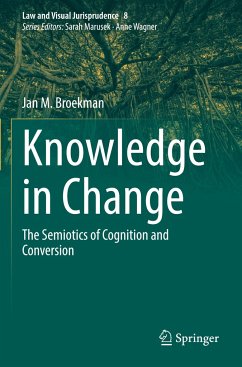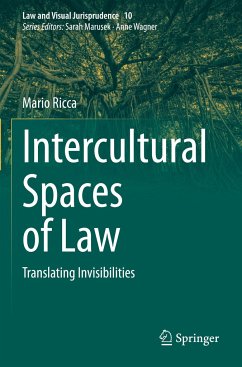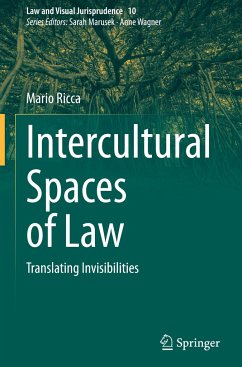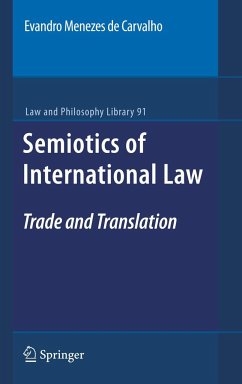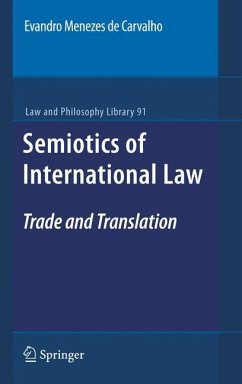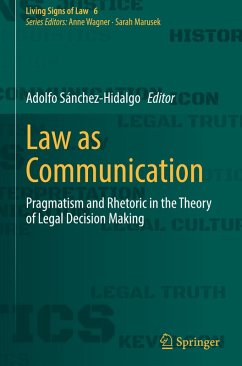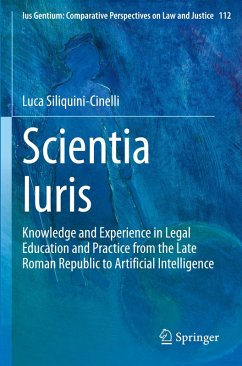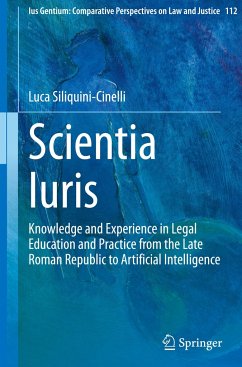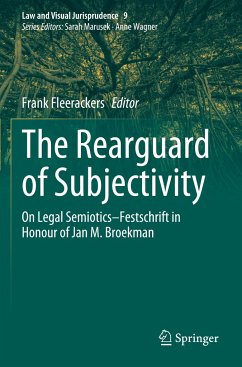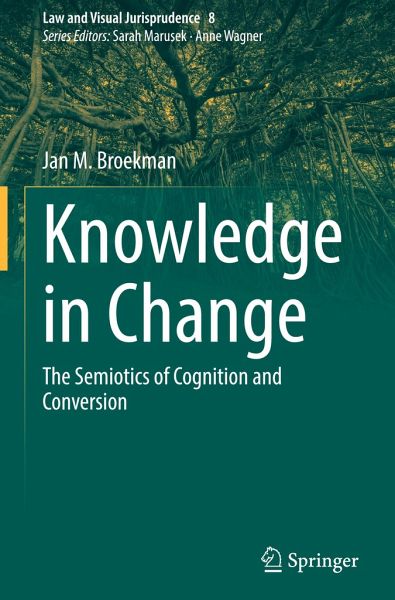
Knowledge in Change
The Semiotics of Cognition and Conversion
Versandkostenfrei!
Versandfertig in 6-10 Tagen
106,99 €
inkl. MwSt.
Weitere Ausgaben:

PAYBACK Punkte
53 °P sammeln!
All knowledge is always a matter of change, as this book underlines. All knowledge links You and Me to Reality. This process of positioning cognition has become heavily influenced by conversion. Its cultural background is in this book named 'the New Plural': a worldview based on combinations of Analog, Digital, AI and Quantum understandings of reality.The New Plural, combined with in-depth observations on the Subject in new forms of knowledge formation, forms the background theme of the book. To understand the Subject as defined in past centuries, like Kant's so-called 'split ego' or Voegelin'...
All knowledge is always a matter of change, as this book underlines. All knowledge links You and Me to Reality. This process of positioning cognition has become heavily influenced by conversion. Its cultural background is in this book named 'the New Plural': a worldview based on combinations of Analog, Digital, AI and Quantum understandings of reality.
The New Plural, combined with in-depth observations on the Subject in new forms of knowledge formation, forms the background theme of the book. To understand the Subject as defined in past centuries, like Kant's so-called 'split ego' or Voegelin's 'flow', are outlined together with Husserl's 'phenomenology of ego-positions'. Today, one encounters the Subject transformed into a Self with other forms that replace the traditional Subject and its position. The dynamics of the Self are therefore broader than any Selfie can picture. What the book calls 'the Self in digital culture' and for what it introduces the name Self-E, is therefore essential for a semiotic observation of all actual patterns and practices of communication.
The decentering of the Subject changed human cognition. The book introduces 'The 3-S Triad' (composed of the 'Subject-Self-Self-E'), which has taken the place and functions of the classical Subject and its dynamics. Cognition has assumed a different position in the heart and mind of every human being. At the same time, the influence of 'The New Plural' has grown, making digital thought formation the leading pattern and foundation of today's knowledge.
That different view on human identity made knowledge as understanding and its traditional grasping disappear. All fragments of planetary life were subjected to a newly conceived and often digitally anchored fitting. That forms one of the most powerful and global challenges to the human mind. What if we conclude about climate change that our knowledge fits the problems concerned? The book's final pages outlinean epistemological path through such complex zones of knowledge! But its broad and encompassing background question remains, what the concept of change really means when it is challenged to clarify the topic we name climate change.
The New Plural, combined with in-depth observations on the Subject in new forms of knowledge formation, forms the background theme of the book. To understand the Subject as defined in past centuries, like Kant's so-called 'split ego' or Voegelin's 'flow', are outlined together with Husserl's 'phenomenology of ego-positions'. Today, one encounters the Subject transformed into a Self with other forms that replace the traditional Subject and its position. The dynamics of the Self are therefore broader than any Selfie can picture. What the book calls 'the Self in digital culture' and for what it introduces the name Self-E, is therefore essential for a semiotic observation of all actual patterns and practices of communication.
The decentering of the Subject changed human cognition. The book introduces 'The 3-S Triad' (composed of the 'Subject-Self-Self-E'), which has taken the place and functions of the classical Subject and its dynamics. Cognition has assumed a different position in the heart and mind of every human being. At the same time, the influence of 'The New Plural' has grown, making digital thought formation the leading pattern and foundation of today's knowledge.
That different view on human identity made knowledge as understanding and its traditional grasping disappear. All fragments of planetary life were subjected to a newly conceived and often digitally anchored fitting. That forms one of the most powerful and global challenges to the human mind. What if we conclude about climate change that our knowledge fits the problems concerned? The book's final pages outlinean epistemological path through such complex zones of knowledge! But its broad and encompassing background question remains, what the concept of change really means when it is challenged to clarify the topic we name climate change.





